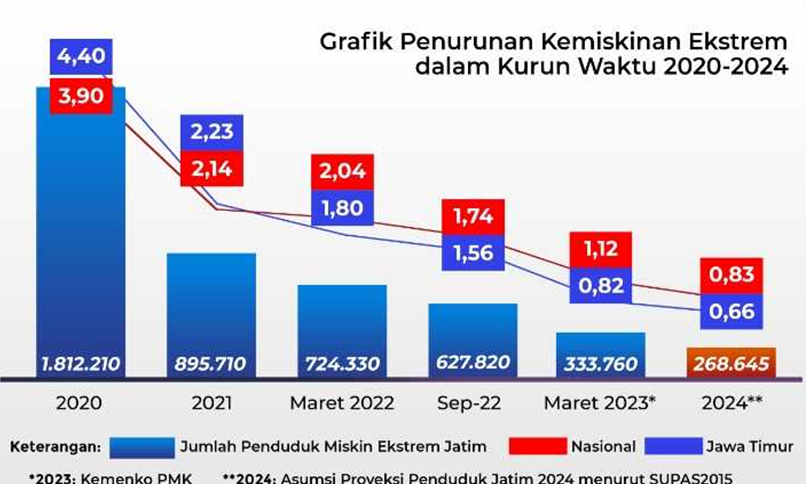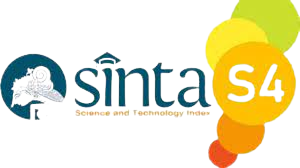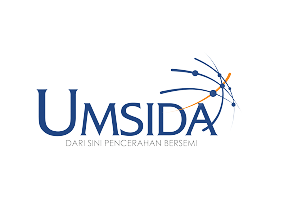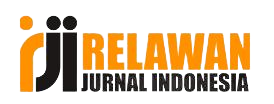SDGs Policy Analysis: Strategy Towards Sustainable Cities and Poverty Alleviation in Mojokerto Regency
Analisis Kebijakan SDGs: Strategi Menuju Kota Berkelanjutan Dan Pengentasan Kemiskinan Di Kabupaten Mojokerto
DOI:
https://doi.org/10.21070/jkmp.v13i1.1810Keywords:
SDGs, Policy, Poverty, Mojokerto RegencyAbstract
This study analyzes the implementation of Sustainable Development Goals (SDGs) policies, especially the goal of zero poverty and hunger, in sustainable development in Mojokerto Regency. The method used is a qualitative approach through literature studies, by reviewing various written sources such as scientific articles, government reports, and policy documents. The results of the study indicate that the integration of SDGs in regional development planning has driven a decrease in poverty rates in Mojokerto, reflected in the decreasing trend in the percentage of poor people over the past five years. Innovative programs such as Kampung Zakat and MSME assistance have contributed significantly to improving community welfare. However, the implementation of SDGs still faces challenges in the form of budget constraints, low community participation, and lack of cross-sector synergy. Progress in poverty and hunger alleviation, the sustainability of achieving SDGs in Mojokerto requires strengthening collaboration, increasing human resource capacity, and optimizing funding.
References
Aryani, & Nurhazana. (2024). Analisis Strategi Pemerintah Desa Dalam Pencapaian Sustainable Development Goals ( SDGs ) Desa Di Kecamatan Rupat. Jurnal IAKP, 5(2).
Bonnedahl, K. J., Heikkurinen, P., & Paavola, J. (2022). Strongly Sustainable Development Goals: Overcoming distances constraining responsible action. Environmental Science and Policy, 129(January), 150–158. https://doi.org/10.1016/j.envsci.2022.01.004
Capah, B. M., Rachim, H. A., & Raharjo, S. T. (2023). Implementasi Sdg’S-12 Melalui Pengembangan Komunitas Dalam Program Csr. Share : Social Work Journal, 13(1), 150. https://doi.org/10.24198/share.v13i1.46502
Del-Aguila-Arcentales, S., Alvarez-Risco, A., Jaramillo-Arévalo, M., De-La-cruz-diaz, M., & Anderson-Seminario, M. de las M. (2022). Influence of Social, Environmental and Economic Sustainable Development Goals (SDGs) over Continuation of Entrepreneurship and Competitiveness. Journal of Open Innovation: Technology, Market, and Complexity, 8(2), 73. https://doi.org/10.3390/joitmc8020073
Firman, F., Sumatono, S., Muluk, M. R., Setyowati, E., & Rahmawati, R. (2024). Enhancing Citizen Participation: The Key To Public Service Transparency. Journal of Law and Sustainable Development, 12, e2937. https://doi.org/10.55908/SDGs.v12i1.2937
Goals, S. D. (2024). Peringkat Kinerja Keseluruhan dari 193 Negara Anggota PBB. SGDs Transformation Center. https://dashboards.sdgindex.org/rankings
Handoko, C. T., & Fitria, S. (2022). Refleksi Pandemi Covid-19 dalam Akselerasi Tujuan Pembangunan Berkelanjutan. ENVIRO: Journal of Tropical Environmental Research, 24(1), 22. https://doi.org/10.20961/enviro.v24i1.65042
Haqqi, H. (2023). The Government’s Policy in Encouraging the Global Competitiveness of Indonesian MSMEs through the Digital Ecosystem. Journal of Economics, Management and Trade, 29(8), 66–76. https://doi.org/10.9734/JEMT/2023/v29i81115
Khoiriah, S., & Perbawati, C. (2023). The Role of the Village Towards Sustainable Development Goals. Atlantis Press SARL. https://doi.org/10.2991/978-2-38476-046-6_97
Lauda, M. M. R. R. S., & Rachman, I. F. (2024). Peran Literasi Digital Dalam Mewujudkan Desa Cerdas Dan Sgds 2030 Pada Era Disruptif. MERDEKA: Jurnal Ilmiah Multidisiplin, 1(5), 186–197. http://jurnalistiqomah.org/index.php/merdeka/article/view/1307%0Ahttps://jurnalistiqomah.org/index.php/merdeka/article/download/1307/1088
Mensah, J. (2019). Sustainable development: Meaning, history, principles, pillars, and implications for human action: Literature review. Cogent Social Sciences, 5(1). https://doi.org/10.1080/23311886.2019.1653531
Moyer, J. D., & Hedden, S. (2020). Are we on the right path to achieve the Sustainable Development Goals? World Development, 127, 104749. https://doi.org/10.1016/j.worlddev.2019.104749
Niaz, M. U. (2022). Socio-Economic development and Sustainable Development Goals: a roadmap from vulnerability to sustainability through financial inclusion. Economic Research-Ekonomska Istrazivanja , 35(1), 3243–3275. https://doi.org/10.1080/1331677X.2021.1989319
Oktarina, A., Pertiwi, C., Paluseri, A. R. A., Fazri, M., Nababan, F. E., Roidatua, M. R., & Imron, D. K. (2023). Smart Governance in Indonesian Village Towards SDGs Achievement. Politik Indonesia: Indonesian Political Science Review, 8(1), 107–122. https://doi.org/10.15294/ipsr.v8i1.39168
Permatasari, P., Ilman, A. S., Tilt, C. A., Lestari, D., Islam, S., Tenrini, R. H., Rahman, A. B., Samosir, A. P., & Wardhana, I. W. (2021). The village fund program in indonesia: Measuring the effectiveness and alignment to Sustainable Development Goals. Sustainability (Switzerland), 13(21). https://doi.org/10.3390/su132112294
Phasa, N. P., & Andriyus. (2024). Implementasi Sustainable Development Goals (SDGs) di Desa Pandau Jaya. Jurnal Mahasiswa Pemerintahan, 1(3). https://doi.org/https://doi.org/10.25299/jmp.18258
Prabu Aji, S., & Kartono, D. T. (2022). Kebermanfaat Adanya Sustainable Development Goals (SDGs). Journal of Social Research, 1(6), 507–512. https://doi.org/10.55324/josr.v1i6.110
Presiden RI. (2017). Peraturan Presiden Republik Indonesia Nomor 59 Tahun 2017 Tentang Pelaksanaan Pencapaian Tujuan Pembangunan Berkelanjutan. 11(1), 1–12.
Presiden RI. (2022). Peraturan Presiden RI. No. 111 Tahun 2022. Kementerian Sekretariat Negara RI, 124956, 1–11.
Sharifi, A., Allam, Z., Bibri, S. E., & Khavarian-Garmsir, A. R. (2024). Smart cities and Sustainable Development Goals (SDGs): A systematic literature review of co-benefits and trade-offs. Cities, 146(October 2023), 104659. https://doi.org/10.1016/j.cities.2023.104659
Shayan, N. F., Mohabbati-Kalejahi, N., Alavi, S., & Zahed, M. A. (2022). Sustainable Development Goals (SDGs) as a Framework for Corporate Social Responsibility (CSR). Sustainability (Switzerland), 14(3), 1–27. https://doi.org/10.3390/su14031222
















